2024 Festival Compilation
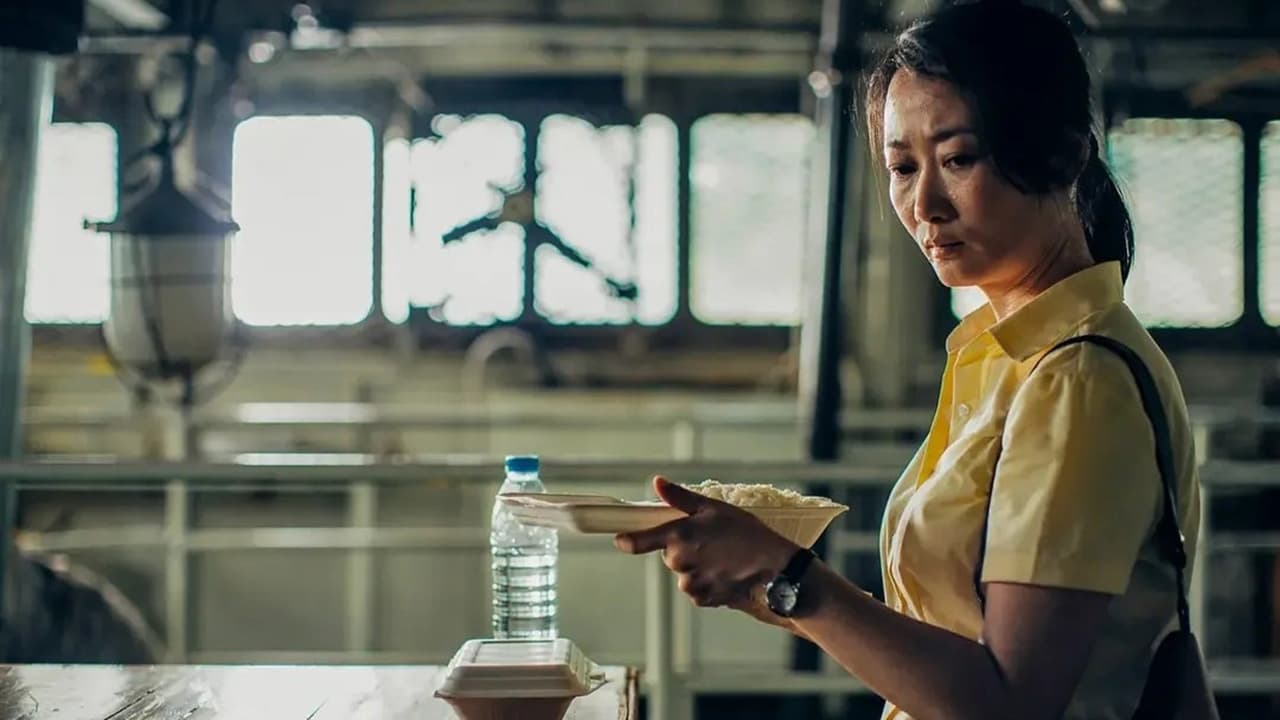
As I've done for the last couple of years, here is a collection of the reviews I wrote this year for InReview Online's coverage of various film festivals from around the world (Rotterdam, Cannes, the New York Asian Film Festival, Venice, Toronto, and the New York Film Festival). For publication here, the reviews have been re-edited and occasionally expanded. Check out the rest of the festival coverage at InRO, they've got a lot of great writers writing about a lot of movies.
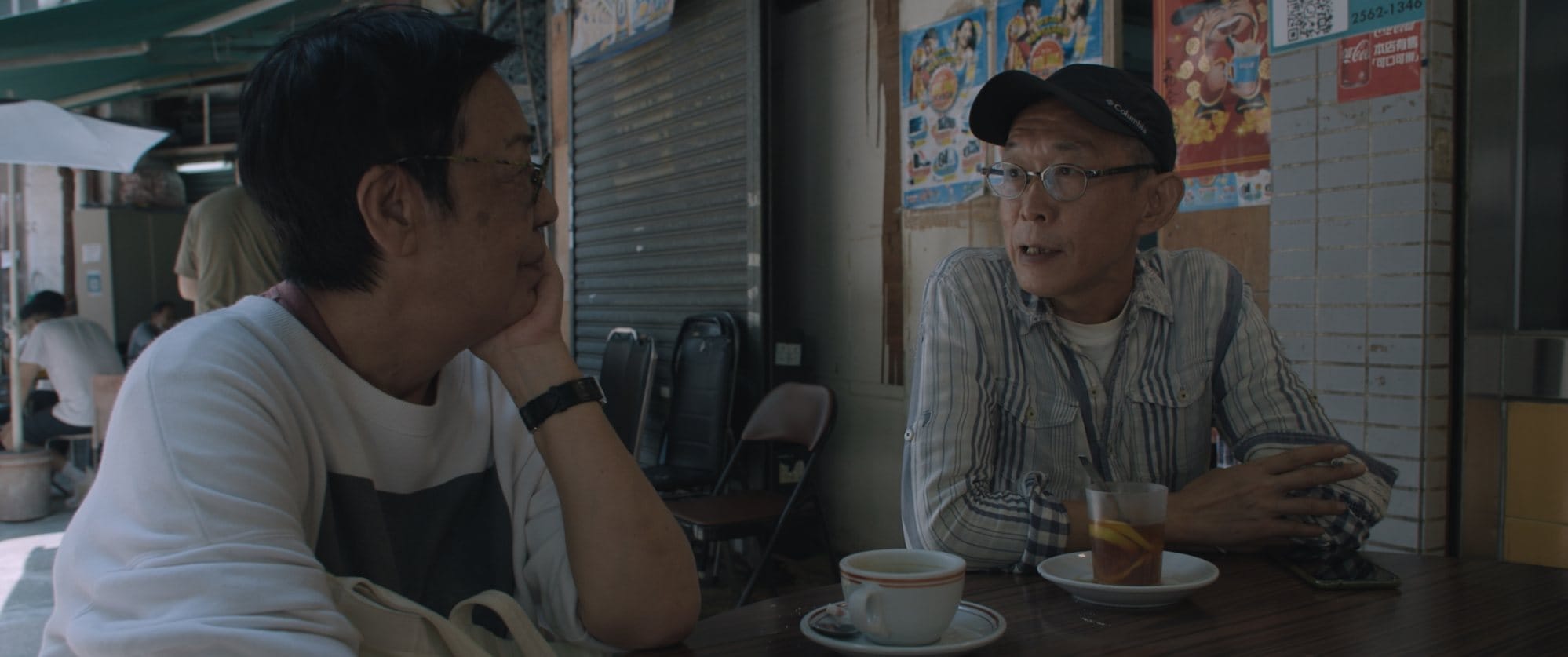
Elegies (Ann Hui, 2023) – January 25, 2024
The subject of the poets and poetry of Hong Kong is a natural for Ann Hui, always the most literarily-inclined of the great directors of her generation, the Hong Kong New Wave. Before studying film in London, she earned a master’s degree in English and Comparative Literature at Hong Kong University, focusing on the work of French writer and filmmaker Alain Robbe-Grillet. In a career now spanning 45 years, she’s adapted a number of literary works, including three novels and stories by Eileen Chang (Love in a Fallen City, Eighteen Springs, and Love After Love) and a two-part adaptation of Louis Cha’s wuxia epic The Romance of Book and Sword, the second part of which, called Princess Fragrance, gives Elegies one of its funniest moments, when one of Hui’s interviewees is asked by his daughter if Hui has made any “Princess films.” Hui’s good humor and self-deprecation is always charming when she appears on film (as in the recent documentary about her, Keep Rolling (Man Lim-chung, 2020)), and she proves a delightful guide to the poets of Elegies.
After initially introducing us to a half dozen different poets, their names and dates of birth (and in a couple of cases, death) cited in on-screen text, along with a sample of their work and images of the places around the former colony they’re writing about (Xi Xi’s poem about living near the old Hong Kong airport, for example), Hui settles in to focus on two poets in particular for most of the movie’s running time. The first, Huang Canran, is an older man (though still 15 years younger than Hui herself) whose work evokes the quotidian realities of Hong Kong life: the feel of the sun, the face of a father at a table with his family in a restaurant. Being a poet, Huang talks about the many other jobs he was required to take to survive, working as a journalist, a columnist, a translator and so on. Lately he has found himself priced out of Hong Kong himself, calling himself an “economic exile” to the Mainland (contrasted to the “political exiles” who had to flee from there to Hong Kong). Hui’s interviews are leisurely and friendly, focusing first on Huang’s work–the relation of a poet to words and words to meaning and so on–but gradually, by following him on his various daily routines, broadening to encompass his family as well. His daughter doesn’t really understand why Hui wants to make a movie about him, the director replies that her mother doesn’t particularly like her films either.
Hui takes much the same approach with the second primary subject, Liu Wai-tong. Again we start with him at work (in his case as a professor preparing to lecture remotely during the height of the COVID shutdowns) and gradually broaden our view of him to include his young son (who covertly sends a remote-controlled train into the interview; “stop creating surreal scenes please,” Liu admonishes him), his friends back in Beijing’s old arts scene, and his work as a photographer. In addition to Liu’s own poetry, we get to see sections of his lecture as well, primarily focusing on the poets Paul Celan and Wisława Szymborska (who also was cited by one of the other poets earlier in the film).
By choosing these moments to highlight, Hui is consciously linking her Hong Kong poets to a wider world, and specifically European tradition (and of poets who lived under Communist regimes). The real subject of Elegies, the one on everyone’s mind that no one can come right out and say (I mean, they are poets after all) is the political situation in Hong Kong in the wake of the 2019-2020 protests. Elegies is a lament for a lost Hong Kong. Huang can’t afford to live there anymore, and Liu is in obvious-though unspoken-exile in Taipei. Hong Kong’s special status as a nexus point between Europe and China is fading just as rapidly as its old shops and housing estates are being transformed by the forces of capitalist overdevelopment and political integration into the Mainland. In this way, Elegies is less a counterpart to Jia Zhangke’s recent Swimming Out Till the Sea Turns Blue, a chronicle of Mainland Chinese writers, than it is Septet: the Story of Hong Kong, the omnibus project Hui contributed to along with six other leading Hong Kong directors. There’s a very real fear that their Hong Kong, the Hong Kong of the New Wave generation, will soon be gone forever. At one point, Hui asks Huang if, like she and her fellow directors, he feels that if their work isn’t about Hong Kong, then it isn’t really important, because it’s not about home. He agrees completely. The fear is that soon the home will be gone, but what comforts Hui, and us, is that the work at least will remain.
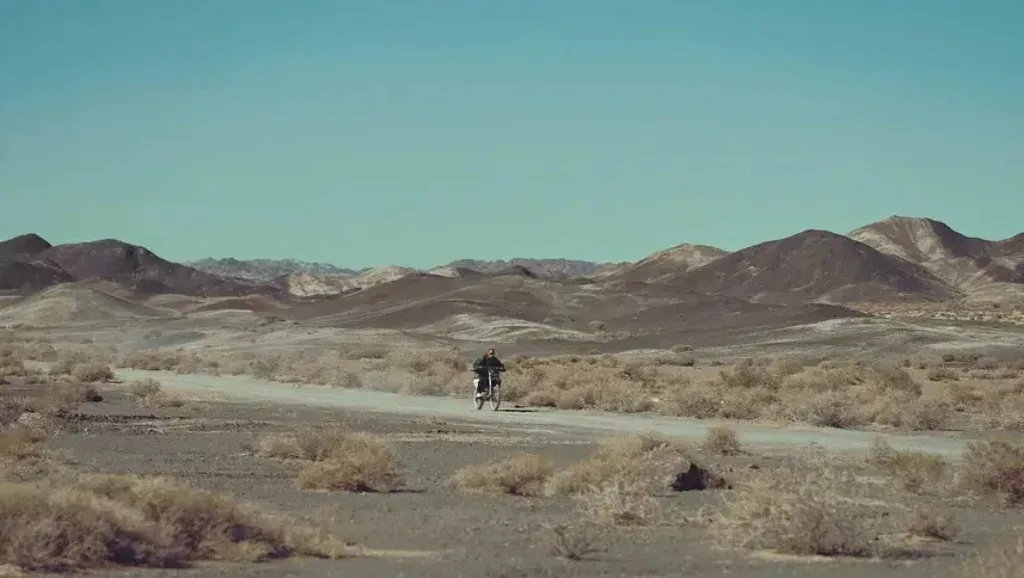
Black Dog (Guan Hu, 2024) – May 23, 2024
If dogs run free, then what must be
Must be, and that is all
True love can make a blade of grass
Stand up straight and tall
In harmony with the cosmic sea
True love needs no company
It can cure the soul, it can make it whole
If dogs run free
— Bob Dylan, “If Dogs Run Free”
Guan Hu’s Black Dog is playing in the Un Certain Regard program at Cannes, so it isn’t eligible for the Palme d’Or, but it should be a strong contender for the Palme Dog, especially if that award had a special prize for ensemble work. The film begins in a desert, the edge of the Gobi in northwestern China. A bus traveling along a dusty road is charged by a herd of wild dogs, crashing the bus but thankfully injuring no one (dog or human). In the ensuing chaos we meet Lang (Eddie Peng), an ex-con returning home after doing time for something involving a wrongful death. It seems he was a local celebrity at one time, a kind of rock star, but now he’s turned inward and sullen, hardly ever speaking. In fact, he probably urinates outside more than he speaks during the film’s first twenty minutes or so.
On one of these micturition excursions, he encounters the eponymous Black Dog. Lang’s hometown has fallen on hard times in recent years, the oil operation that once powered it having moved on, the town has become a dusty collection of abandoned Mao-era concrete structures: apartment buildings, factories, a zoo. As the people moved away they left their dogs behind. Those dogs have formed massive roving packs, ruling the streets and the surrounding countryside. One in particular has become the target of fear: the Black Dog has reportedly bit several people and is thought to be rabid, and there’s a hefty reward for his capture.
Thus begins a classic story of male friendship. At first, Lang, out to capture the dog, is his enemy and his victim. He does eventually capture the dog, but a friend, fearing that Lang has contracted rabies, forces the two of them to hole up together in Lang’s house (after a certain amount of time, if the dog’s still alive, then Lang too will be OK). Shut in together, the two bond and become inseparable buddies for the rest of the movie, the plot of which revolves loosely around the uncle of the guy who Lang may have killed trying to get revenge on him and also a woman who works for the circus traveling through town, with whom Lang may spark a relationship (she's played by Tong Liya, from the Detective Chinatown movies).
The film is a kind of return to form for director Guan Hu. A member of the Sixth Generation of Chinese filmmakers who got their start in the late 90s, Guan has only been able to complete one feature since his 2015 hit Mr. Six. That was the benighted war film The Eight Hundred, whose protracted, censorship-plagued release schedule was a topic of much speculation in 2019 and 2020. By design a propaganda film about Chinese resistance to the Japanese in the early days of World War II, the film ran into trouble because the soldiers it valorized were from the wrong Chinese army, representing the Nationalist Kuomintang rather than the Communist Party. He’s on surer ground with Black Dog, a light minimalist satire that revisits familiar Sixth Generation terrain, namely the fraught situations of workers and small towns as China economically blossomed in the years leading up to the 2008 Beijing Olympics. Black Dog is set on the eve of those Games, which also happened to coincide with a total solar eclipse, the ideal location of which to observe was just outside of Lang’s hometown (the film gives the town the name “Chixia.” I can find two towns of that name near the border of the Gobi on google maps, I have no idea which, if either, is the one Guan has in mind).
As Lang roams through his dusty town, Guan keeps his distance. Literally: almost the entire movie is composed of the kind of long shots that were the hallmark of a certain strain of early 2000s Sixth Generation filmmaking (especially those of Guan’s peer Jia Zhangke, who plays a small role in Black Dog (a variation on his “Boss Jia” persona from a few of his own films) as the man in charge of rounding up all the stray dogs). I’m pretty sure the Black Dog (played by a greyhound named Xiao Xin, who was adopted along with two other dogs that worked on the film by Eddie Peng) actually gets more close-ups than the Guan’s human star. It’s a perverse decision given that Peng is the most charismatic leading man Chinese cinema has produced in the 21st century. Originally from Taiwan (though he attended high school and college in Vancouver), Peng has been a competent action star in movies like Rise of the Legend and Call of Heroes, has played charming rogues in Ann Hui’s war film Our Time Will Come and Jiang Wen’s Hidden Man, and is excellent in a comic role in Han Han’s time travel comedy Duckweed. Guan’s long shots serve a purpose, of course, isolating Peng in the dusty, dilapidated landscape of the town (as well as the vast deserts and mountains of the areas outside town), and providing ample space for the herds of other dogs to roam through the set. And it makes sense too for Peng’s character: withdrawn, remote, only really able to bond with a dog, denying us his movie star smile is necessary for the film to work at all.
And yet, the film is most effective when Guan is at his most whimsical. A Chekov’s movie poster on the wall of Lang’s house looks ahead to multiple uses of Pink Floyd’s The Wall on the soundtrack; the abandoned zoo maintained by Lang’s father, featuring a handful of random animals that may have just wandered in from the Gobi (a camel, a monkey, a goat) but also a beautiful tiger all of whom are eventually joined by many many dogs; and some magical eclipse and Olympics Opening Ceremony sequences. Black Dog isn’t particularly sophisticated or novel in its metaphor or social analysis. We’ve seen these towns and characters before, the detritus of one industry in the process of being plowed under for the next phase, with the people who live and work in those spaces forced to adapt as best they can or move on (like the circus) to the next town. Black Dog works as well as it does because the minimalist camerawork and pacing creates an ideal tension with the film’s inherently goofy premise. But under it all is real emotion: love (of animals) and disappointment (in people). Guan inflicts all the violence and beauty of nature onto those forces of economic progress, the world itself joining the fight against the capitalist developers and petty gangsters (who amount to much the same thing) that try to run things. Earthquakes and hailstorms, wild beasts and snakes on the loose. Lang, in the end, can be redeemed by his friendship with the Black Dog. But the town. . . it’ll have to fend for itself.
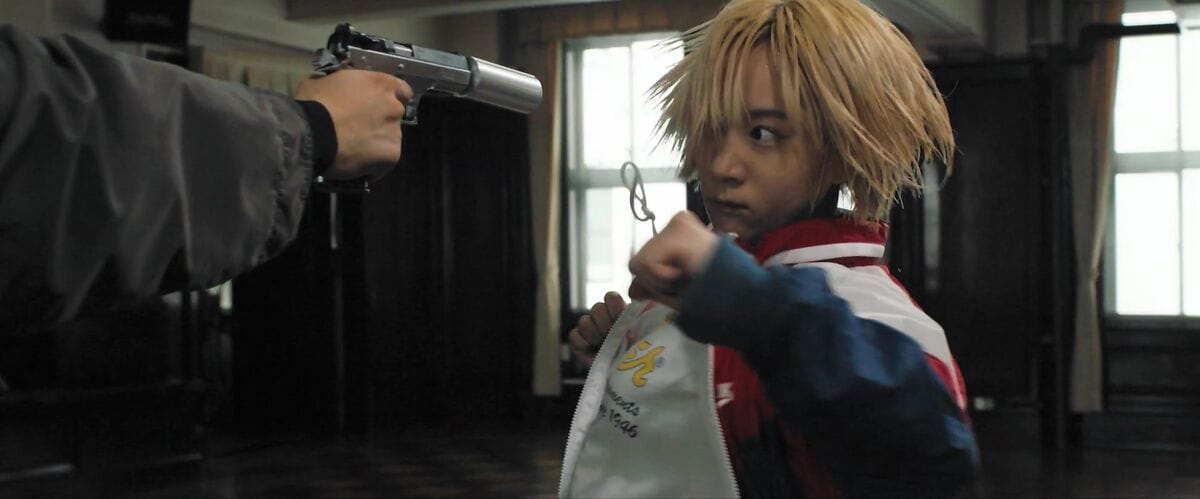
Baby Assassins: Nice Days (Sakamoto Yugo, 2024) - July 18, 2024
The best action movie franchise of the 2020s is about a couple of teenaged slackers who, we they aren’t being incredibly lazy, work as hired killers. The first Baby Assassins saw our heroes, Mahiro (Izawa Saori) and Chisato (Takaishi Akari) graduate high school and be forced, for tax purposes, to live together and find real jobs. The second saw them in need of jobs again, this time to pay their hitman insurance premiums and also to cover their outstanding fees for a gym membership they never used. Action scenes bookended the films, while the middle was filled out with the two girls simply hanging around, eating food, cracking each other up, and failing to fit into regular society, while a fuller world of weirdos (yakuza, other killers, the people who facilitate and clean up after killers, boys) was drawn in around them.
This third film, which premieres at the NYAFF before its local release, finds the girls, for once, not facing any financial concerns. Instead they are on vacation, to the beachfront area of Miyazaki on the island of Kyushu in southern Japan, where they are to perform a hit. That job gets complicated when another killer shows up to do the same thing. He’s a freelancer named Kaede, working outside of the hitman union structure, and so they’re tasked with killing the scab as well. He’s played by Ikematsu Sôsuke, who starred as the Shin Kamen Rider last year and who also starred in Between the White Key and the Black Key, the opening film of Japan Cuts, the other big East Asian film festival taking place in New York City this month.
This entry in the series is more action-packed, by far, than either of the first two. It’s again choreographed by Sonomura Kensuke, and again mostly stands as a showcase for Izawa, the single greatest action movie star to emerge over the last decade or so. Dressed in baggy clothes with long bangs covering her eyes, Izawa affects a kind of skater aesthetic (she performs the finale wearing a Fugazi t-shirt), befitting her character’s Bartleby-esque slacker defiance. The clothes too enhance her fighting style, which is built around quick movements and faints, slithering in and around her opponent, into and out of clutches and wrestling holds alternating with quick jabs, leg sweeps, and blocks. Izawa and Sonomura’s fights are lovely, fast and fascinatingly tactical, they have a rhythm and logic to them that are exceedingly rare in mainstream cinema, and in English-language film almost only found at the margins, in the straight to video/streaming bargain bins. Takaishi acquits herself well in the fights too, but her role is largely as a shooter. It’s clear she’s more of an actress playing at being an action star than the real deal.
The fights are spread throughout Nice Days, rather than being confined to just the opening and closing, which means it plays like much more of a conventional movie than any of Sakamoto’s other films (which include A Janitor, a more traditional yakuza film wherein he first paired Izawa and Takaishi as assassins, albeit different characters, and Yellow Dragon Village, a very clever riff on the slasher film). There are action beats every 10-15 minutes or so, with drama and comedy in-between coming from the lone hitman’s deteriorating psychological state and the Baby Assassins’ interactions with their colleagues, respectively. None of this is as weird or exciting as the restaurant the girls’ worked at in the first film, or Chisato’s street chess game in the second, but it’s still pretty fun and actually serves a thematic purpose, something Sakamoto was ambitious enough to avoid doing with the first two movies.
Mahiro and Chisato are joined by another pair of killers from their firm, a dim-witted but sweet bodybuilder and a hard-nosed older woman named Minami (played by Maeda Atsuka, star of Kurosawa Kiyoshi’s To the Ends of the Earth). Minami is seven or so years older than our heroes, but she’s appalled by their slacker manners and lifestyle, which she credits to the generation gap between millennials like herself and Gen-Z. Eventually they all get along well enough to do their work, while Kaede, the solo artist, slowly goes insane. The message here is about the virtues of community, especially in the work environment. Chisato and Mahiro and Minami are all some kind of sociopath, without a doubt, but they’re able to function thanks to their friendships and working relationships with other people (I guess that by definition means they aren't sociopaths, but instead psychotic? I don't know, the point is they lack a moral understanding of life and death). Kaede is just as much a sociopath, but without the backing of a union, of a team of partners to look out for him and help him along the way, he loses his mind. He’s also being compensated horribly for his work, being told to kill 150 people for a measly paycheck. A strong union would never allow labor to be exploited in such a manner. Instead, its members even get a beach vacation every once in awhile. And maybe a trip to a nice restaurant to enjoy Miyazaki’s famous beef.

The Lyricist Wannabe (Norris Wong, 2023) - July 20, 2024
Norris Wong’s first feature film, My Prince Edward, was one of the better Hong Kong indie movies of recent years. It starred singer/actress Stephy Tang as a young woman caught between East and West, Hong Kong and China, one man and another. Wong avoided all the expected turns of a scenario that could have made for either a romantic comedy or a bleak tragedy, instead opting for a mood of unstable melancholy, a frustrated despair that matched her lead character’s distress and, metaphorically if you like, the state of Hongkongers in general in the late 2010s. The Lyricist Wannabe is her follow-up, coming five years after that promising debut (in-between she co-wrote the 2022 Wong Hoi anthology film Let It Ghost. Wong also produced the new movie). It too obstinately refuses to fit into any neat generic category, and also features Stephy Tang (albeit in a brief cameo), but otherwise seems to have little in common with the earlier film.
Chung Suet-ying stars as Law Wing-sze, an aspiring lyricist. We first meet her in high school, where she and her friends rewrite popular melodies with their own lyrics. She decides she wants to do this for a living, and spends the next several years trying to break into the industry. Along the way, she learns some of the theory behind writing Cantonese song lyrics, which are more difficult than Mandarin, Korean, or English because of the large number of tones in Cantonese. If the tone doesn’t fit the melody, either the meaning of the word changes or the music gets messed up. In between going to college and working PA and internship jobs, Sze sends out requests and gets some work writing lyrics for demos, but every time she seems to come close to breaking through, something happens to mess it all up.
Notably, I think, Wong never asserts that Sze is particularly good at her craft. The lyrics we see seem to have potential, but are all kind of missing something, or have an awkward word or phrase that disrupts what should be the smoothness of a pop tune. This may simply be because of the subtitle translation (always a difficult task given the differences between English and Cantonese, made nigh impossible by the demands of tonality and rhyme when working with song lyrics), but it seems to me intentional on Wong’s part. Because her movie is not about “The Lyricist” it’s about “The Lyricist Wannabe”. What’s important about Sze is not her writing, but the fact that she has this wildly improbable dream of artistic achievement that she works at for many many years but never actually achieves. Sometimes her failures are because of her ability, but they’re also just as often matters of bad luck or timing.
When Wong visualizes Sze’s ambitions, she uses animation, child-like drawings of animals and rainbows and stars and such–the dreams of adolescence. As she gets older, these fade away into hard realities. Complicated romantic relationships, conflicts with bosses, the need to find a real job. Sze doesn’t really have an idea she wants to express, a vision of the world she needs to put into words, or any real interest in writing or poetry outside of pop lyrics (notably she studies biology in college, a field totally unrelated to her supposed life goal). Her lyrics are mechanically chosen to fit the melody of the songs she is given by other composers, but they rarely seem to have any personal meaning to her or to her life. She’s not like the eponymous bus driver in Jim Jarmusch’s Paterson, quietly making terrific little bits of art out of the world around him. She would very much like to be that person, and she’s not completely without ability (she wins a lyric-writing contest, and multiple composers tell her they like her work). But by movie’s end, she hasn’t gotten there yet and seems to have all but given up. Maybe, she says, she could have worked harder. Maybe she will.
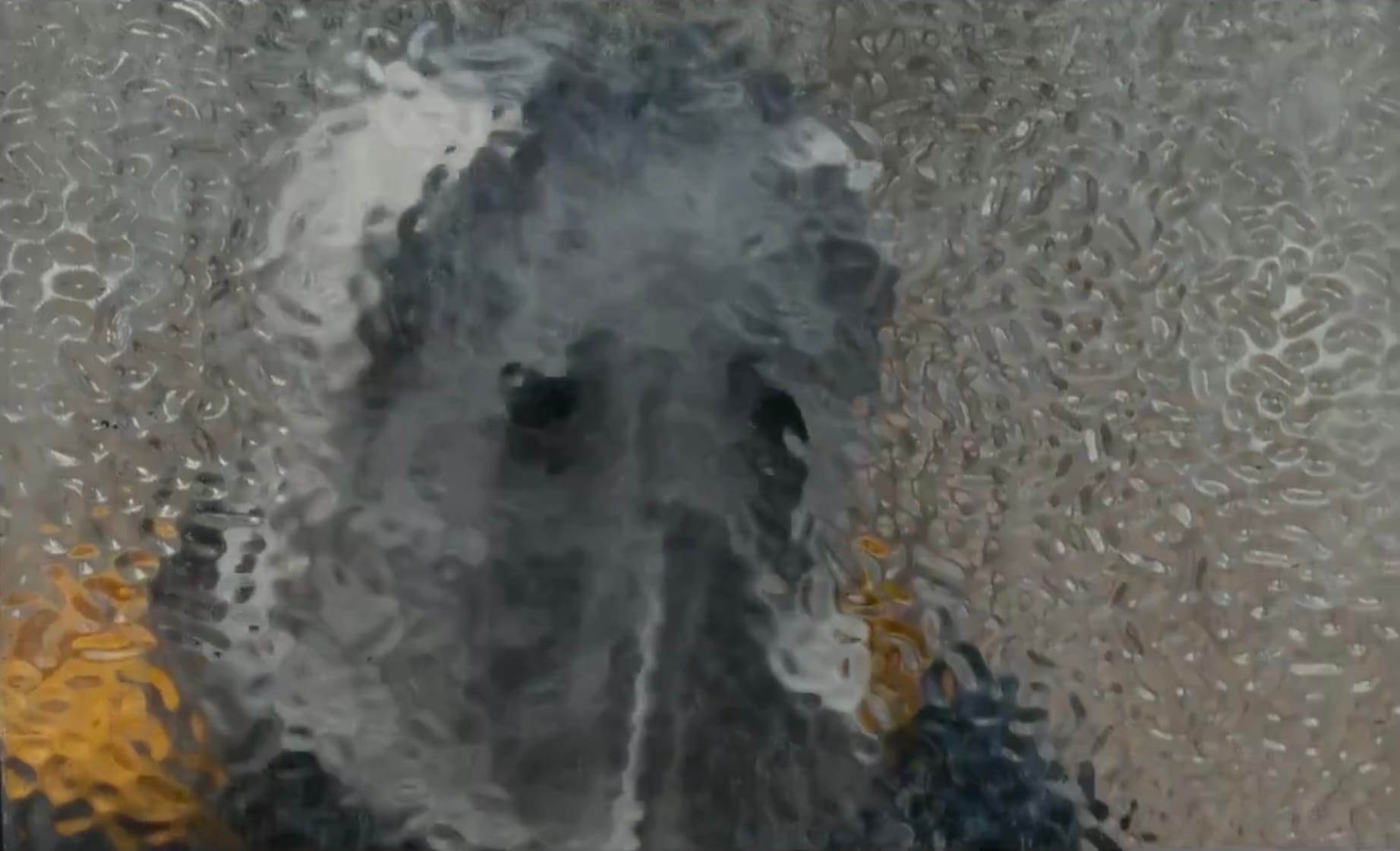
Cloud (Kurosawa Kiyoshi, 2024) - September 1, 2024
Kurosawa Kiyoshi has been arguably the greatest filmmaker of the last decade. I haven’t seen all of his films since 2015 (I’m missing Journey to the Shore, Foreboding, and his remake of his own The Serpent’s Path, one of his three 2024 films), but the ones I have seen constitute one of the most impressive contemporary bodies of work from a veteran filmmaker, one as dedicated to remixing his own work in late auteur style while still retaining the fresh experimental bent of a much younger director. Martin Scorsese and Hong Sangsoo may be the only other filmmakers who have also been able to do both this far into their careers. While Kurosawa’s short film Chime, which made the rounds earlier this year, took its cues from his turn of the century masterpieces Cure and Pulse, distilling them both into a pure expression of unnameable yet deeply resonant dread, Cloud seems like a spiritual sequel to his 2016 film Creepy, an exploration of the everyday evil next door that begins as one kind of suspense thriller before moving to something more like a violent genre film. In Creepy, the monster under investigation is the family and neighborly relations; in Cloud, the villain is just as archetypal: capitalism itself.
Suda Masaki stars as Yoshii, a young man who moonlights from his factory job as a reseller on the internet. He finds products that are underpriced and buys them up, reselling them at something more approaching their true value. Sometimes this involves simply picking up stuff on sale at Amazon, other times it requires persuading mom and pop manufacturers to let their goods go at a significant discount, and others it involves dealing in counterfeits and bootlegs. Nothing he does (aside from selling fakes, though he seems to maintain deniability about their authenticity) is particularly illegal, but that doesn’t stop the people who fail to profit as much as he does, or who are stuck with bootleg merchandise, from hating him for it.
As Yoshii’s business grows, he quits his factory job, much to the dismay of his boss. He also turns down an investment opportunity from a classmate, and he rents a house in the country for him and his girlfriend. All of these decisions will come back to haunt him. Not literally as in one of Kurosawa’s ghost stories, despite the first half of the film’s nods toward the uncanny, but physically, as Yoshii becomes the target of increasingly threatening violent reprisals. As the film makes its genre shift in the final third, it becomes a kind of hitman thriller, like a Kurosawa version of a Baby Assassins movie, except one where the action is just as black and deadpan as the humor, and it’s (almost) only boys shooting the guns.
Kurosawa’s trick is that all of this blends together because of his mastery of visual filmmaking: framing, camera movement, editing. No director has ever been better at expressing the uncanny, the unseen, the unknowable than Kurosawa. With Chime, those unknowns are intangible, a kind of free-floating madness expressive of the malaise of modern life. In Cloud, despite the ephemeral title (a pointed contrast with the internet relations that become all too real), the madness is resolutely physical: violations of the home and the body perpetrated by the villains, themselves motivated by the material consequences of Yoshii’s actions, or the result of his privileging his material well-being above his friends’ and colleagues’ emotional concerns. One might take the explicability of Cloud as a drawback, a lesser statement than the more mysterious, and thus more infinitely interpretable Chime. But seen together, they’re really two halves of the same whole, two expressions of the same dread Kurosawa has spent the last thirty years exploring as deftly and with as much precision as anyone ever has.
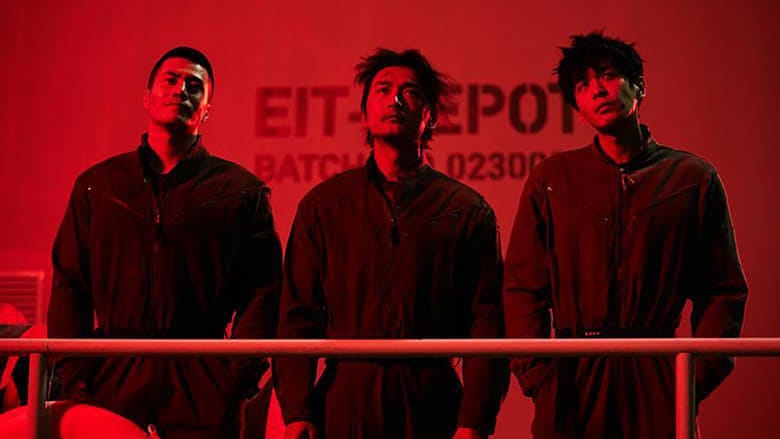
Escape from the 21st Century (Yang Li, 2024) - September 9, 2024
Comparisons to Everything Everywhere All at Once seem inevitable in the early buzz on Yang Li’s Escape from the 21st Century. The TIFF program guide cites it, along with Scott Pilgrim, Tsui Hark, and Stephen Chow. None of those seem exactly right though, Everything Everywhere least of all. Escape lacks that Oscar winner’s star power: none of its performers are as exceptional as Michelle Yeoh and Ke Huy Quan. But while it may boast a bevy of great actors, Everything Everywhere doesn’t have a tenth of the visual imagination Yang brings to Escape. More than any of those other analogues from Hollywood or Hong Kong, Escape reminded me of contemporary Japanese science fiction films like Junta Yamaguchi’s time travel brain twisters (River and Beyond the Infinite Two Minutes) and, most especially, Shinji Higuchi and Hideaki Anno’s Shin Kamen Rider. It’s a bold mix of ideas and action, never afraid to take a tragic turn. It’s much more committed to the darkness of its world than would be acceptable in an Oscar movie, and its otherwise familiar existential solutions are more earned because of it.
One of the more interesting things about Escape is that its world is not our own. It’s set, a narrator tells us, in the years 1999 and 2019 on a distant Planet K, which are times and places very much like our Earth China, except they allow the movie to maintain plausible deniability for the sake of our Mainland Chinese censorship board. Three teen boys are doing teen boy things (climbing towers, getting in fights) when they fall into some toxic waste and learn that whenever they sneeze, their consciousness jumps 20 years into the future. The 2019 world is a depressing place (not at all like Xi Jinping’s China!), and the three boys become deeply depressed at the ways their lives have turned out. One is a hired killer for a medical company that illegally traffics organs. Another is a photojournalist hanging around a badass writer who has a terrible boyfriend. The third, a hefty nerd in the past, has grown handsome and muscled and is dating the girl who had been the love of his friend’s life (the guilt here is colored too by the fact that she’s depressed and drifting away into addiction).
The boys try various schemes to improve the past, but nothing seems to work. The evil corporations that rule 2019 only grow more powerful, and the women in their lives fall ever more apart. The journalists are being hunted by the assassin’s partner, a nigh-unstoppable killing machine, and the bad guys have figured out a way to take advantage of the kids’ time-leaping abilities, which will result is the end of civilization as we know it. The apocalypse is nigh, but then again it always is. Everybody dies sometime.
Yang packs all this with quick cuts and bright colors (toxic waste swirling in the water like a lava lamp, bright red and orange sunsets), shifts to anime-style animation (making explicit the film’s debt to Japanese sci-fi, while also recalling Hong Kong films like Gallants and Tai Chi Zero), terrific action sequences, and bold soundtrack choices (best use of Bonnie Tyler in a Chinese language film?). It’s dizzying in all the good ways you’d expect from this kind of thing, while remaining deeply pessimistic about China’s (uh, I mean “Planet K’s”) future and its recent past. The kids know things are bad and getting worse. Everything Everywhere gives them platitudes about family and forgiveness. Yang Li knows there’s no real way to escape the 21st century. Best to just kick its ass or die trying.
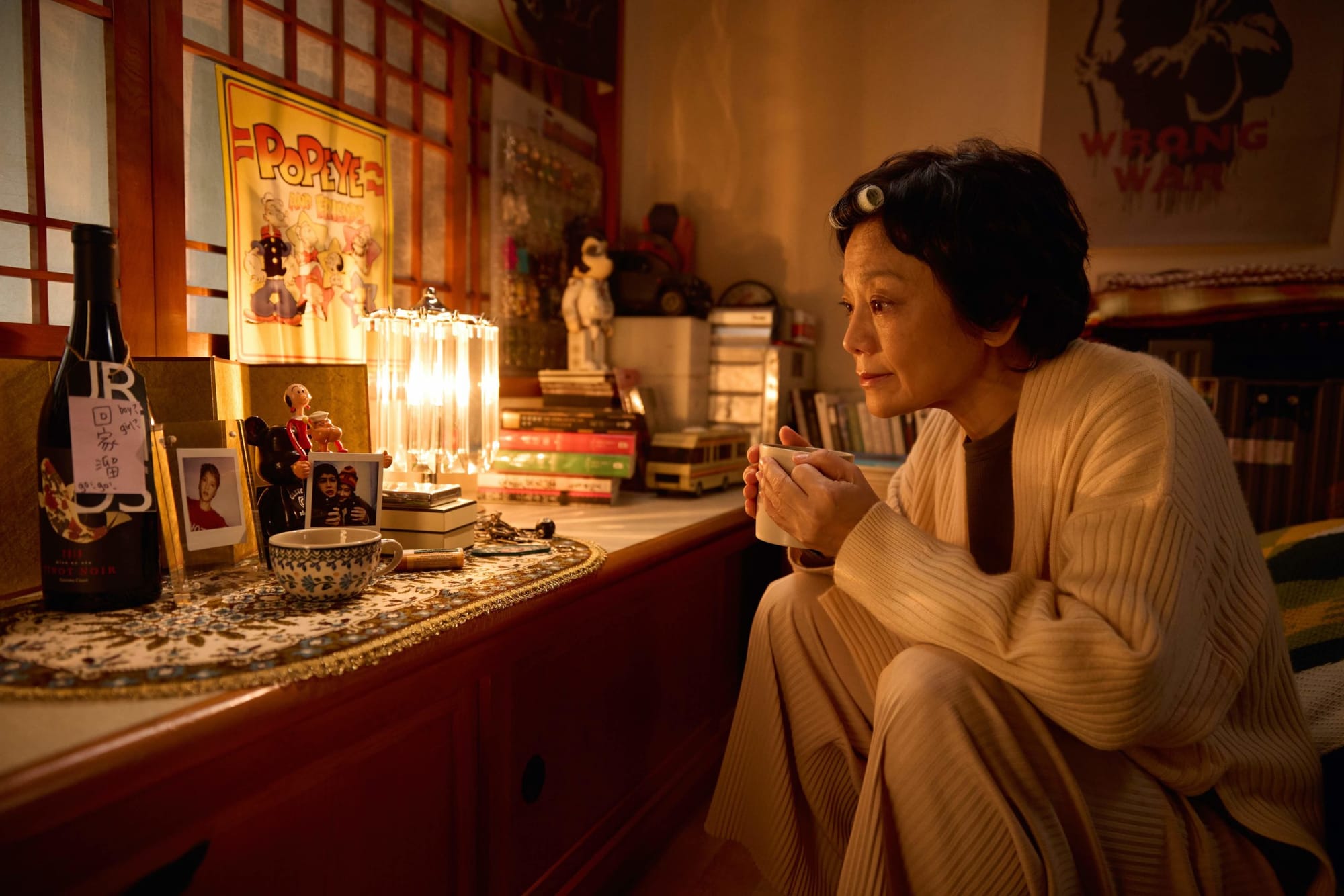
Daughter’s Daughter (Huang Xi, 2024) - September 11, 2024
Sylvia Chang has been one of the more under-appreciated forces in international film for almost 50 years now. Beginning her career as an actress in the mid-70s in films by King Hu and Li Han-hsiang, she moved into producing in her native Taiwan, where she was instrumental in the launching of the New Taiwan Cinema–she gave Edward Yang one of his first TV directing jobs and lent her stardom to the omnibus project In Our Time and Yang’s first feature That Day on the Beach. At the same time, she was also an early star for the Hong Kong New Wave, leading Ann Hui’s first feature The Secret and later serving as a Taiwanese producer for the upstart production company Cinema City, whose first major hit, the Aces Go Places series she also starred in. For that company she also starred in key early works by Tsui Hark (she convinced him to pay more attention to his female characters) and Johnnie To. In the late 80s, she began directing her own films, an intermittent series of smart and meticulous comedies and melodramas. Though she hasn’t directed a film of her own since 2017’s Love Education, here at TIFF she is starring in (and executive producing alongside Hou Hsiao-hsien) the second film from Taiwanese director Huang Xi.
Daughter’s Daughter is a family melodrama centered almost entirely on Chang’s performance as Jin Aixia, a woman in late middle age juggling a mother with dementia and two more or less estranged daughters. The eldest, Emma (played by Karena Lam), was given up for adoption and raised in New York’s Chinatown when Jin was a teen. The younger, Zuer (Eugenie Liu), grew up with her mother in Taipei. An early prologue deftly introduces the family and their complicated relationships in 2018 before skipping into the present, when Zuer and her wife are in New York attempting in vitro fertilization. A car accident kills them both, and Jin is left to decide what to do with their one surviving embryo.
Huang spends most of the film lingering on Chang’s exploration of her character, rather than on the various moral and legal complications of the scenario. Grieving deeply over the death, Jin is an uneasy mix of stubborn and guilty. Righteous in her belief that what she did (in giving up the one daughter for adoption, in being strict and demanding with the other) was correct, but profoundly regretful over her actions nonetheless. Jin’s psychological struggle plays out over a series of flashbacks, fleshing out the various mother-daughter relationships, while the debate about the embryo in the present takes place in a series of discussions between Jin and Emma. Huang captures all this in warm, drifting long takes, indebted to the approach of Hou and his longtime DP Mark Lee Ping-bing, which gives the actors plenty of space to burrow into their character’s impossible contradictions. Occasionally these strike a false note, as Lam’s performance veers toward the theatrical, in rough contrast to Chang’s more internalized acting. A late film revelation interestingly undermines the reality of these scenes, situating us even more inside Jin’s head than we had suspected.
It’s a fascinating performance from Chang, the kind of broad but nuanced work she hasn’t done in years, since her own 20 30 40 in 2004 or maybe even Stanley Kwan’s 1989 Full Moon in New York. She’s always been a five tool actor, equally at home in romance, drama, and comedy, and she gets to flex all of those muscles here, with big dramatic outbursts, heartbreaking monologues, and silent moments of stillness, where her big expressive eyes explain the character far better than any dialogue could. The movie would fall apart without her: the narrative is otherwise a bit too tangled and too many of the other actresses are short-changed (the role of the dementia-ridden grandmother in particular seems underutilized). But it’s a promising second feature: Huang’s commitment to the study of one particular character is an admirable and somewhat unique approach. But most importantly, she’s smart enough to simply let Sylvia Chang work.
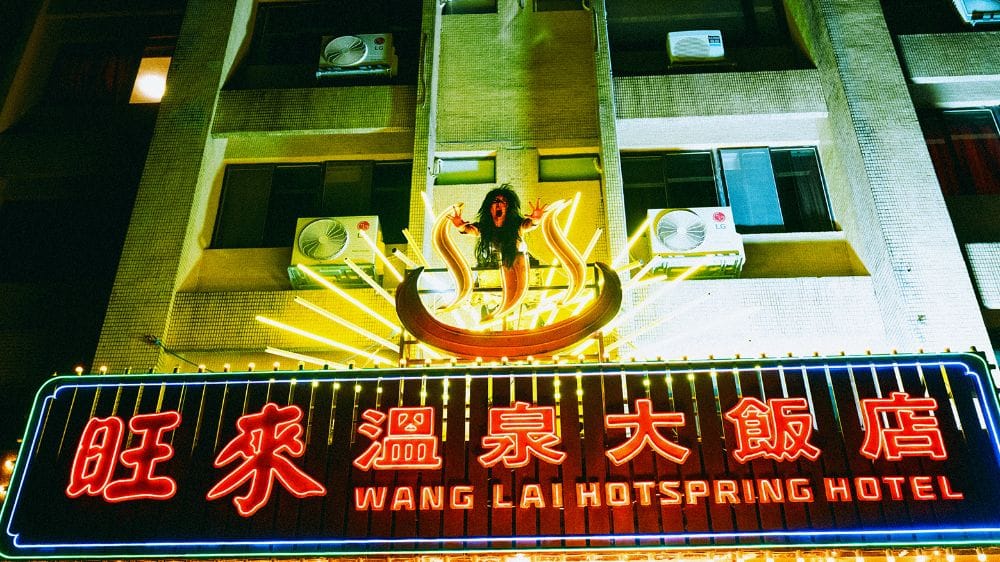
Dead Talents Society (John Hsu, 2024) - September 16, 2024
While Taiwanese art house films have been regulars on the international festival circuit since the breakthroughs of Hou Hsiao-hsien, Edward Yang, and the rest of the New Taiwan Cinema in the 1980s, the island’s popular cinema has always struggled to differentiate itself in the West from the more familiar cinemas of Hong Kong and Mainland China. But in recent years, the tide seems to be shifting. The Taiwan Film Archive has done tremendous work restoring and rereleasing film classics going back to the 1960s, everything from the wuxia and kung fu films of King Hu and Joseph Kuo to the New Cinema classics. And as the productivity of Hong Kong’s cinema has steeply declined in the decade since the Umbrella Movement (though great films are still being made in the former colony), Taiwan’s pop cinema has been on the rise. John Hsu’s Detention, a 2019 horror film based on a video game and set during Taiwan’s White Terror of the early 1960s, was a hit across the sinophone world (though it was not allowed to be released on the Mainland). His latest, Dead Talents Society, is an existential comedy about scary movies and celebrity, a kind of Scream meets Monsters Inc meets All About Eve deeply steeped in the aesthetics of 21st century East Asian horror.
A brief prologue sets up the world: Sandrine Pinna (Legend of the Demon Cat, See You Tomorrow) plays the ghost world’s most popular star, Cathy. She haunts the creepy Room 414 at a hotel, where she pops out of a closet and does an backwards crab walk until her victim runs away screaming. These kinds of hauntings are essential for the ghost world’s economy, which gets a boon when ceremonies are performed to clean the haunting sites: the more famous the scare, the bigger and more lavish the ceremony. Cathy though is soon upstaged by her young protege, a mean girl who takes hauntings in a new direction (the internet!) and relegates Cathy to has-been status.
Then we join the story of a young ghost played by Gingle Wong (star of Detention). She has no particular talents and is going to disappear from existence in 30 days unless she can obtain a special Haunting License. Cathy’s manager Makoto takes her in, and a ragtag team of misfits work to teach her the haunting ropes. It all leads to a haunt-off between the new girl and the mean girl to scare a trio of youtube skeptics. Success means goodies for all the ghost world, as well as a bit of self-esteem for our loser heroes. Failure means a death worse than death.
Dead Talents Society is a breeze. Mostly light and goofy, it moves at a furious pace through its ingenious world (well, until its post-credits scene, which is the funniest one of those I’ve seen in a long time). It lacks the acrobatic genius or set-piece construction of something like the Mr. Vampire series, but has something of the same attitude. Its references are to J-Horror era classics like The Ring, which may be a little outdated (Hideo Nakata’s film came out more than 25 years ago!), but classics are classics for a reason. And its central metaphor: that being remembered on social media has become a replacement for being remembered by your friends and family is a powerful one.
Gingle’s trouble begins when an item special to her is accidentally thrown away by her surviving family. This is what triggers the countdown to her disintegration. The only solution for a ghost whose memory has been lost by the living is to try to live on as a meme. But that kind of celebrity is fleeting and limited: the pursuit of it causes all kinds of problems for the striving ghosts, and even if they do succeed in achieving it, it’s only a matter of time before a trendy new ghost comes along and usurps their place. Real human connection—being remembered and having a tangible impact on the lives of the living is much more permanent, more real. Hsu is smart enough not to strain the metaphor, but it’s more than a little disturbing, scary even, how much his ghost world resembles our own increasingly haunted social media.
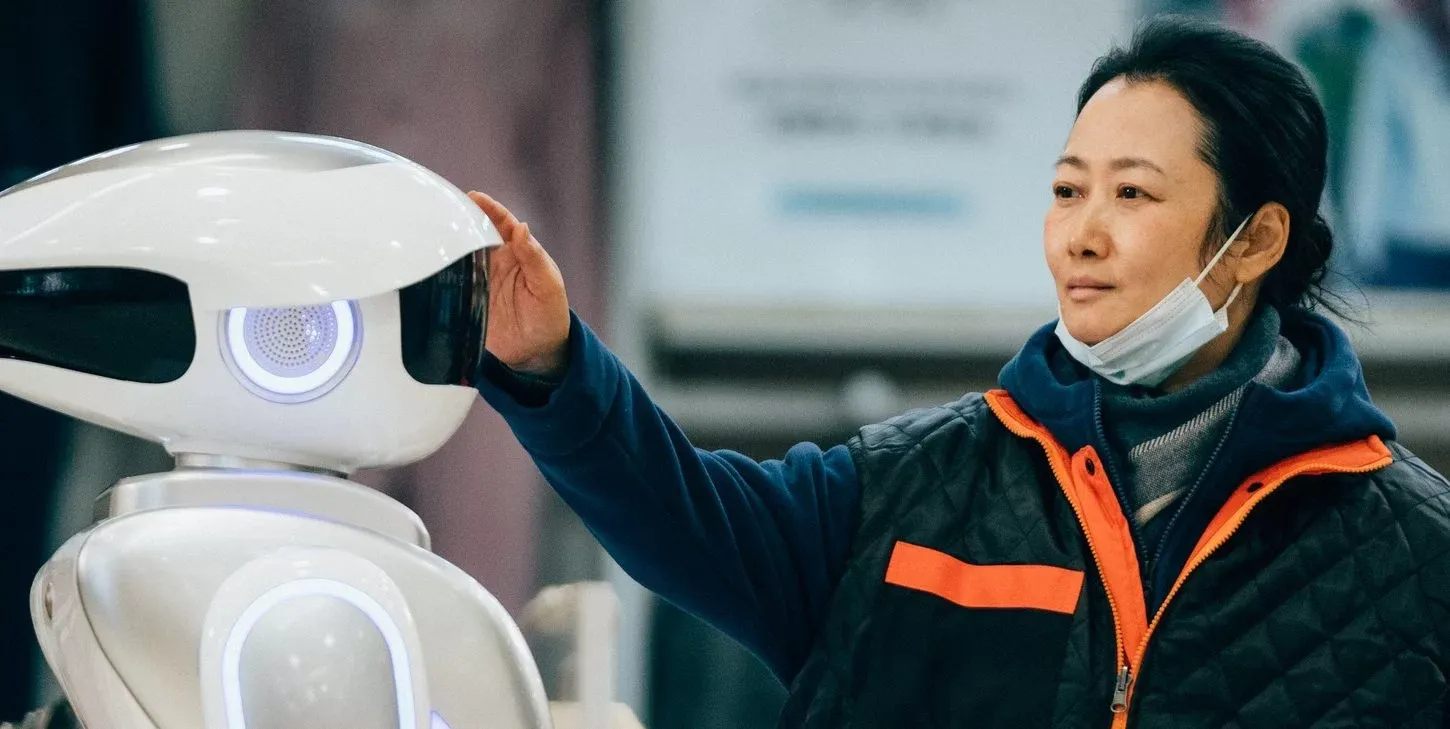
Caught by the Tides (Jia Zhangke, 2024) - October 1, 2024
In 2001, Jia Zhangke made Unknown Pleasures, in which Zhao Tao plays a woman named Qiao Qiao who tries to make a living as a singer and model while juggling the attentions of her abusive agent Qiao San (played by Li Zhubin), her young boyfriend Xiao Ji, and Xiao’s friend Guo Bin. The film is set in the northern Chinese city of Datong, about 5 hours north of Jia’s hometown Fenyang.
In 2006, Jia Zhangke made Still Life, shot in the last days of the dismantling of the city of Fengjie, soon to be flooded as a result of the Three Gorges Dam project. Zhao Tao plays Shen Hong, a nurse searching the town for her estranged husband, Guo Bin (played by Li Zhubin). She eventually finds him, but it seems he’s been up to no good: shady real estate dealings, sending gangs of kids to fight other gangs, romancing a corrupt politician, so she ditches him.
In 2018, Jia Zhangke made Ash is Purest White, which is set over three time periods. It begins with footage leftover from Unknown Pleasures, but quickly moves to new material and introduces Zhao Tao as a woman named Zhao Qiao who, along with her husband Guo Bin (played by Liao Fan) are medium-level gangsters in the city of Datong. In its second third, the film shifts to Fengjie, where Jia mixes in leftover footage from Still Life. Zhao is in town searching for Guo Bin, who has been engaged in shady business dealings. They meet and breakup. In the final third, Guo returns to Datong after suffering a stroke, where Zhao wearily takes care of him.
In 2024, Jia Zhangke has made Caught by the Tides, which is set over three times periods. It begins with footage from Unknown Pleasures, some of it outtakes, some of it directly borrowed from the earlier film. Zhao Tao plays Qiao Qiao, an aspiring actress and model who is in a relationship with her agent. He’s again played by Li Zhubin, but now he's named Guo Bin. After a fight, Guo texts her that he’s off to make his fortune and disappears. In its second third, the film shifts to Fengjie, where Jia mixes in leftover footage from Still Life. Zhao is in town searching for Guo Bin, who has been engaged in shady business dealings, including sending gangs of kids to fight other gangs and dating a corrupt politician, so she ditches him. In its final third, Guo returns to Datong after suffering a stroke, where Qiao and he reunite.
What are we to make of all these rhymes and repetitions? Why is it that in Jia Zhangke’s films we are presented with an infinite variety of Zhao Taos, but those Zhaos are perennially stuck with losers named Guo Bin who don’t deserve her? Actually, that’s not much of a question: the fact that Zhao is Jia’s wife should explain it. Caught by the Tides’s remixing of old material has been partially explained by practical reasons: shooting during COVID would limit the scale and time Jia and his crew could devote to a new project. But I don’t know that I buy that: plenty of Chinese filmmakers have been able to make wholly new movies over the past four years without scavenging the outtakes of their past work.
Rather, the simpler explanation is that Jia is getting older, and one of the things that happens when you get old is that you spend a lot more time thinking about your past than you do going out there to create new memories. He made Unknown Pleasures as his third feature film, when he was 31 years old. It’s not unexpected that he would constantly think about other ways he could have made it, other directions its story could have gone. It was a film that consciously set out to capture a new generation of Chinese youth, kids who had grown up completely in the post-Cultural Revolution era, when China was rapidly modernizing and, to some extent, Westernizing. In 2006, with Still Life, Jia found the perfect symbolic representation of the effects of that modernization in the crumbling city of Fengjie.
Ever since Jia returned to fiction filmmaking in 2013 after a seven year absence (during which time he made a handful of documentaries), his films have been episodic attempts to capture a wide swath of modern China. A Touch of Sin combined real-life news reports of scattered tragedies with the conventions of wuxia and other genre fiction in an attempt to link China’s seemingly alienated present to its long and complex history and culture. The three films after that are split into thirds, spanning from 2001 to the mid 2000s to the present and near future. Mountains May Depart created new stories and characters for each of its timelines, while Ash and Tides reconfigure Jia’s previous work.
Where Sin took wuxia as its referent, Ash used Heroic Bloodshed cinema, tracking the difference between gangsters who followed the form of the Chow Yun-fat heroes they idolized and those who truly upheld the honorable ideas the films espoused. Tides though is nothing more or less than a romance: a missed chance followed by grave mistakes, with the hope of reconciliation and atonement to come with the wisdom of age.
Mountains was widely criticized (mostly unfairly, in my opinion) for its depiction of the next generation in the form of Zhao Tao’s character’s son. It seems likely that Jia, realizing he is no longer connected to the youth of China, has retreated to the safety of his middle-aged memories, content to refashion his past and mine it for new potential resonances, rather than attempt to capture a younger generation he really doesn’t understand anymore. This may explain why, given that in the middle third of Tides, set in 2006, Guo Bin is said to be 32 years old, but in the section set in 2022, he appears much older than 48. I’m 48, and while I don’t look that old either, believe me, I feel like it every time I try to figure out what these kids today are up to and why.
Tides feels like an attempt at summarization, a way to close the book on a chapter of Jia’s filmmaking before (hopefully) moving on to new and original products. The movie it reminded me of most (aside from Jia’s own films, of course) was Adam Curtis’s It Felt Like a Kiss, which similarly reconfigured the director’s last decade or so of work, but distilled down to its essence. Just as Tides is shorn of most conventional dialogue or characterization, Kiss does away with Curtis’s famous narration: both movies instead make extensive use of title cards to explain necessary information, but otherwise rely on music and images to convey their stories.
Mountains begins and ends with the sound of waves crashing, the opening sounds of the Pet Shop Boys’s cover of “Go West” and also possibly a reference to Zhao Tao’s given name, which means “waves.” Tides begins and ends with the sound of wind blowing. Both the wind and the waves are expressions of motion, ironic for a filmmaker who seems stuck in his moment. Ash is Purest White gets its title metaphor from a volcano, the heat of the earth purifying its heroine’s soul. Looking to the future, Jia has given us UFOs and transparent iPads and talking robots, will he find new elements for his movies as well?
